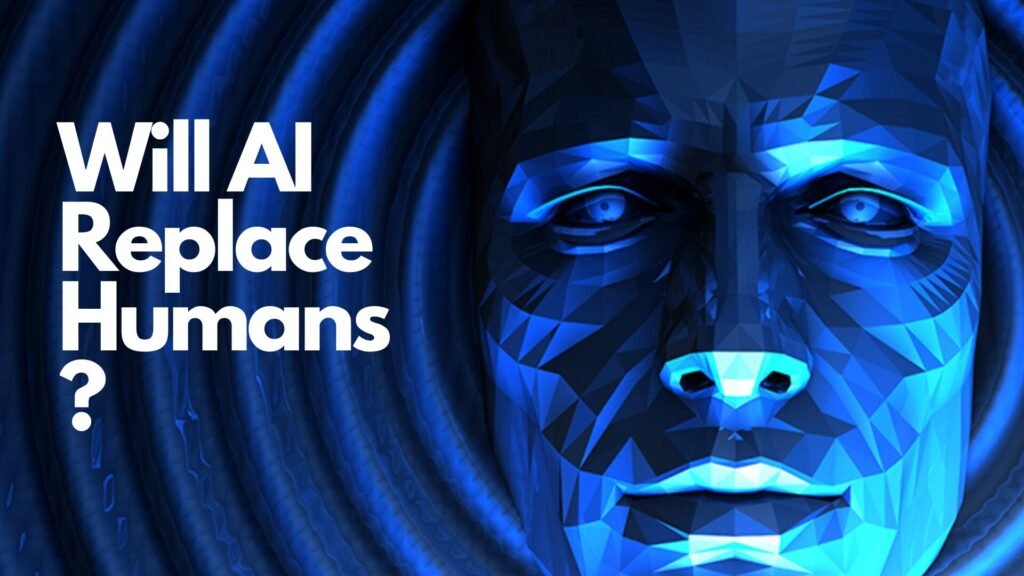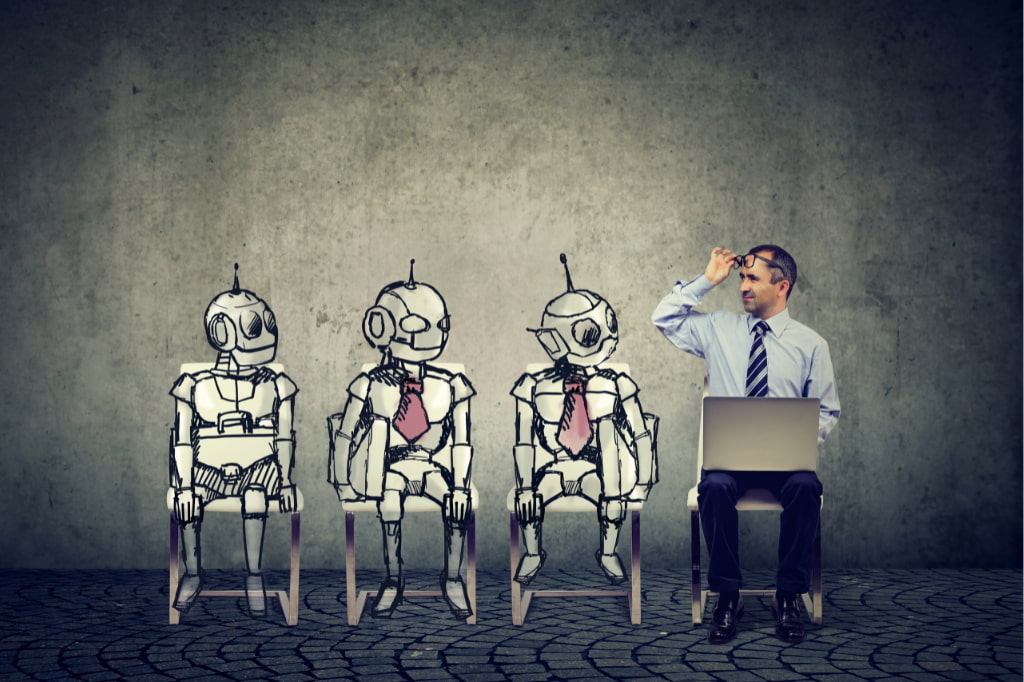Introduction
Artificial Intelligence (AI) rapidly transforms the world, pushing the boundaries of what was once thought possible. From automating repetitive tasks to providing insights that drive business and innovation, AI is reshaping industries and redefining roles. This shift has prompted an essential question: will AI eventually replace humans? In this post, we’ll dive deep into AI’s potential to replace human roles, examining what AI is, the most likely affected sectors, and the promising and concerning implications of this shift.

What is AI?
AI is a branch of computer science focused on building systems capable of performing tasks that typically require human intelligence. These tasks include problem-solving, decision-making, natural language processing, and more. At its core, AI functions through data-driven algorithms that allow machines to “learn” from patterns and make predictions or decisions without human intervention. Machine learning (ML), deep learning, and neural networks are subsets of AI, each enabling systems to become more adept at tasks by analyzing vast amounts of data.
Are Humans Replaceable?
The idea of machines replacing humans has sparked heated debate. While certain tasks, especially repetitive or data-driven ones, are prime candidates for automation, human qualities like creativity, empathy, and ethical decision-making remain challenging for AI to replicate. So, while AI can outperform humans in specific tasks and calculations, it lacks the holistic reasoning and nuanced understanding that people bring to complex decisions. In roles requiring these human qualities, replacement is less likely.

Sectors Most Likely To Be Affected By AI
AI is poised to impact various sectors to different extents. Here are some fields where the influence of AI is expected to be most profound:
- Manufacturing: Automation has already revolutionized manufacturing, with robots handling tasks on assembly lines. AI could take it further, enabling smarter, self-optimizing factories.
- Healthcare: AI-driven diagnostics, personalized treatments, and robotic surgeries are changing healthcare delivery. AI tools assist doctors with rapid and accurate diagnoses, treatment predictions, and surgeries.
- Finance: AI is transforming finance with algorithms that predict market trends, manage risks, detect fraud, and personalize investment strategies, often faster than human analysts.
- Retail: AI is reshaping retail, enhancing efficiency, and personalizing user experiences in areas such as personalized shopping experiences, inventory management, and customer service.
- Transportation: Self-driving cars are a primary example of AI’s transformative power in transportation. They promise safer roads and efficient logistics, but potentially replace many driving-related jobs.
- Customer Service: AI-powered chatbots and virtual assistants are increasingly handling customer queries and complaints, improving response times, and reducing the need for human agents for routine inquiries.
The Positive Side Of AI
AI brings considerable benefits, improving efficiency, precision, and convenience across industries. Key advantages include:
- Increased Efficiency: AI can perform tasks tirelessly and at incredible speeds, allowing for high productivity and cost savings.
- Data-Driven Decision-Making: By processing large volumes of data, AI provides valuable insights and accurate predictions that help organizations make better decisions.
- Risk Reduction: In dangerous jobs, AI can help reduce human exposure to harm by automating hazardous tasks (e.g., drones in disaster zones or robots in factories).
- Enhanced Healthcare: AI aids in diagnosing diseases early, personalizing treatment plans, and conducting complex surgeries, potentially saving countless lives.
- Environmental Monitoring and Conservation: AI-powered systems can analyze environmental data to track climate patterns, monitor pollution, and aid in conservation efforts, helping to address global environmental challenges.
The Dark Side Of AI
Despite its benefits, AI’s rise also brings several challenges and potential downsides:
- Job Displacement: Perhaps the most pressing concern is the potential for job losses. Roles in manufacturing, retail, and customer service are at high risk of automation, which could lead to unemployment and economic inequality if not managed carefully.
- Ethical Dilemmas: AI systems make decisions based on programmed data, but this can introduce biases and ethical concerns, especially when used in sensitive areas like criminal justice or hiring processes.

- Privacy Concerns: AI relies on massive datasets, often including personal information. This creates privacy risks, especially if companies misuse or inadequately protect sensitive data.
- Dependence and Deskilling: As AI takes over specific roles, there is a risk of human skills eroding over time. Excessive reliance on AI for tasks like decision-making can lead to reduced critical thinking and problem-solving skills among humans.
- Security Risks: Advanced AI systems can be exploited for malicious purposes, including cyberattacks, creating potentially catastrophic security risks.
An Optimistic Perspective: AI as an Opportunity for Human Evolution
While AI may replace specific jobs, it also presents opportunities for humans to evolve and find new avenues for creativity and growth. This shift could lead to:
- Creation of New Jobs: AI will likely give rise to new professions focused on AI management, ethical oversight, and maintenance, as well as industries we can’t yet envision.
- Human-AI Collaboration: Rather than viewing AI as a replacement, we can see it as a powerful tool to augment human abilities. Combining human intuition with AI’s data analysis capacity can lead to groundbreaking innovations.
- Focus on Creativity and Innovation: With AI handling repetitive tasks, humans may have more freedom to pursue creative and complex problem-solving roles, focusing on innovation rather than routine.
- Skills Development: The demand for skills in AI, machine learning, data science, and robotics is growing. This creates incentives for educational institutions and individuals to learn these skills, driving a skilled, tech-savvy workforce.

Conclusion
AI’s growing influence cannot be denied, and while it may replace specific roles, the reality is nuanced. While AI has the potential to handle many tasks, certain uniquely human traits—creativity, empathy, and ethical reasoning—are far harder to replicate. For many sectors, AI will act as a partner rather than a replacement, enhancing our abilities rather than making them obsolete.
The rise of AI should be seen as an opportunity, not a threat. With thoughtful implementation, AI can lead to a more efficient and innovative society, where humans and machines work together to solve pressing challenges. By approaching AI’s development with a focus on collaboration and adaptability, we can ensure that AI’s evolution becomes a stepping stone for human growth and opportunity, rather than a source of fear. In the future, AI will not replace humans; it will empower them to reach new heights.
Visit Woocur For More Such Blogs
Thank you 🙂






